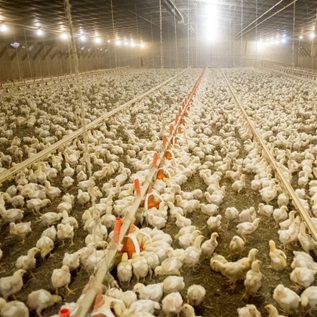Kentucky's 5th District Favors More Food Safety Funding
KENTUCKY'S 5TH DISTRICT FAVORS MORE FOOD SAFETY FUNDING
Among likely voters surveyed in Kentucky's 5th congressional district, almost seven in 10 say having new U.S. Food and Drug Administration (FDA) food safety measures would be worth a one-to-three percent increase in the cost of food, according to a new Pew-commissioned poll by the bipartisan team of Hart Research and American Viewpoint.
In addition, 73 percent also say they favor requiring food companies to pay an annual average fee of $1,000 per facility to help fund these federal food safety activities.
The responses reflect strong support for federal safety oversight of both domestically produced and imported food products among voters in the district.
High-profile outbreaks of contaminated eggs, peanut products, spinach and other foods in recent years have sickened many people across the country. According to the U.S. Centers for Disease Control and Prevention, an estimated 48 million food-related illnesses occur annually in the United States, with 128,000 people hospitalized and 3,000 dying as a result.
The FDA Food Safety Modernization Act was signed into law in January, which strengthens the oversight authorities of the FDA. The legislation improves safety standards for food facilities and fresh produce, strengthens inspection requirements, boosts powers to help limit the dangers of food imports and provides the FDA with the power to issue a mandatory recall of contaminated food, among other authorities. These new authorities are crucial because the FDA is responsible for the safety of 80 percent of the nation's food supply.
Voters in Kentucky's 5th congressional district, 90 percent of who say the government should be responsible for ensuring that food is safe to eat, were also widely in favor of the activities required under the new law. For example, 91 percent favor both requiring increased FDA inspections of food facilities and that foreign countries exporting food to the United States certify their own safety standards meet U.S. requirements. Before the new law was enacted, each facility received a visit from an FDA inspector on average once a decade and the agency only examined about one percent of food imports.
"For too long the FDA has desperately needed new food safety authorities, but without adequate support from Congress, Americans will continue to get sick from foodborne illnesses," said Erik Olson, who directs food programs for the Pew Health Group. "This poll reflects a strong belief among most voters in eastern Kentucky that strong government oversight of the food supply is necessary."
Release of the survey comes as Congress is expected to consider legislation that will support the federal government for the next fiscal year.
The survey, conducted between April 29 and May 5, 2011, polled 303 likely voters on landline and mobile phones in Kentucky's 5th congressional district. The survey has a +/- 5.6 percent margin of error.











